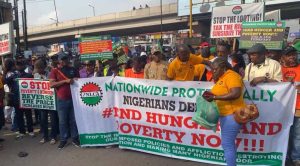
Lagos — Nigeria has approved the immediate resumption of cash transfers to 12 million vulnerable households, Minister of Finance Wale Edun said on Monday, amid a cost-of-living crisis and calls by labour unions to cushion hardship caused by reforms.
President Bola Tinubu scrapped a popular but costly fuel subsidy last May and twice devalued the currency in less than a year, leading to soaring prices. Africa’s biggest economy now grapples with a cost-of-living crisis fueled by the highest inflation rate in nearly three decades.
Edun told reporters after a cabinet meeting that restarting the direct cash transfer was crucial to tackling rising prices, especially elevated food prices, and to the government’s ability to provide purchasing power to at least 60 million people who are less well-off.
To address concerns about past irregularities, Edun emphasized the introduction of strict measures to identify beneficiaries. Payments will be made directly into bank accounts or mobile money wallets linked to a national identity number and bank verification number, ensuring transparency and traceability.
“Each person receives 25,000 naira for a total of three months,” Edun said, highlighting the program’s immediate impact.
“It will be clear who it went to and when it went to them.”
The government has also pledged additional support, including plans for a social security program for unemployed youth and graduates, alongside a consumer credit scheme to boost affordability and economic recovery, Edu said.
The latest measures to cushion the impact of ongoing reforms follow a two-week ultimatum by Nigeria’s main labour unions to the government to meet demands ranging from wage hikes to improved access to public utilities.
The unions accused the government of failing to uphold pledges to soften the impact of reforms. They plan a two-day protest from Tuesday to raise their voices over the hardship.
*Elisha Bala-Gbogbo, editing: William Maclean – Reuters



